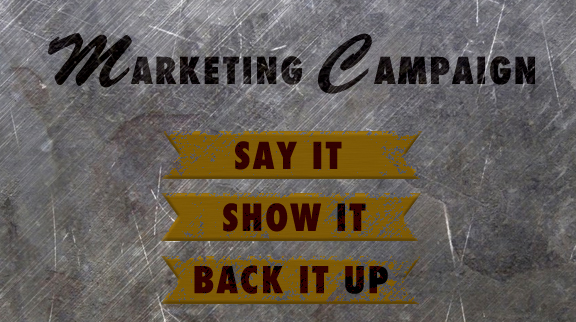 Is it bragging if I tell you what I am going to do, show you
how I am going to do it, and then back up all of this by making it happen?
Is it bragging if I tell you what I am going to do, show you
how I am going to do it, and then back up all of this by making it happen?
I am a sports fan. In my lifetime, there have boatloads of
players who could talk smack. You know, the boasting about how they were going
to do this and they were going to do that. Most of it is all talk, no action.
However, I was watching a show recently on the great NBA rivalry between the
Los Angeles Lakers and the Boston Celtics teams of the 1980s. As the story was
told, Celtics forward Larry Bird's antics as a trash talker came into the
spotlight. Bird was fond of telling opposing players what the Celtics were
going to do on the next play, which usually involved Bird scoring. In one
particular game against the Lakers, the Celtics were down by two points with
only a couple of seconds left in the game. Bird walked over to Lakers forward
Michael Cooper, one of the league’s best defenders, and told him that he would
be shooting a three point shot from the corner. He pointed out the exact spot
on the floor where he would make the game winning shot. Then he told him how he
was going to get the ball. That Cooper would try to guard him, but Bird would
curl around him, take a pass and make a three point shot to seal the victory.
That’s quite audacious! Not only did he tell his opponent that he was taking
the shot, but he drew up the entire play for him. The most audacious part of
this story is that Bird did just as he said right down to the details. And the
Celtics won the game!
Now let me compare that to marketing. Marketing makes very
bold statements about brands. Typically this is done with a campaign slogan that
is pithy and memorable. We hope to use words that will stick in the minds of
consumers so that they define our brand by the slogan. We position products and
services as the best, the highest quality, the most effective, etc. When you
think about what you are selling, I would imagine you have made claims about it
similar to these. However, are those slogans true or are they just a bunch of empty
words? If you can back up your marketing claims in those campaigns, you have
given your target market a reason to buy from you.
Here is a three step process to help you make your marketing
campaign slogans more than just talk.
1.
Say
it to make your brand distinct
Whenever you are building a successful
marketing campaign, your slogan has to do two very important tasks: it has to
meet the needs or wants of your target market and it has to make a distinction
between you and your competition. First, define your target market. To whom are
you selling? Next, make a list of how your product or service can help them
solve a problem or make life easier. Next, draw up a Unique Selling
Proposition. This is a statement that defines what you are doing better to meet
the customers’ needs than your competition. From there, create your campaign
slogan. Here is a tip: if your campaign slogan can be added to your
competitor’s logo and it is true of them as it is for you, you have not made
any distinction in the words you have used. You need to start over.
2.
Show
it to the customer
It is not enough just to state your
marketing slogan, you have to show what you are saying is true. This will tie
your slogan directly to your work. Some ways to do this are to post customer
satisfaction testimonials, to write case studies where the use of your product
or service solved a problem for a client, demonstrations of your brand at
venues that attract consumers (i.e. trade shows, lunch and learns, live
point-of-purchase locations – think grocery store samples, etc.) If you can
show your customer not only how your product works, but how effective it is when
it works, you will have something to back up your words.
3.
Back
it up
There is nothing more frustrating
to a consumer than when something you have just purchased does not live up to
its billing. It fails to work or maybe just not as well as it was marketed. If
you want to be effective in marketing, you have to understand the connection
between quality control and marketing. If your marketing has oversold your
products and services, many would argue that you need to back off your
marketing. However, I would say you need to work on your product and elevate it
to meet the expectations of your customers. No one likes to buy junk.
What is happening with your marketing claims? Are you
promoting your brand to make a distinction? Are you demonstrating the effectiveness
of your products and services to show your customers how your brand is good for
them? Are your products and services living up to your campaign slogans or is
there a quality issue? If you can say it, show it, and back it up, you will
have a marketing plan that will sell well with your customers.